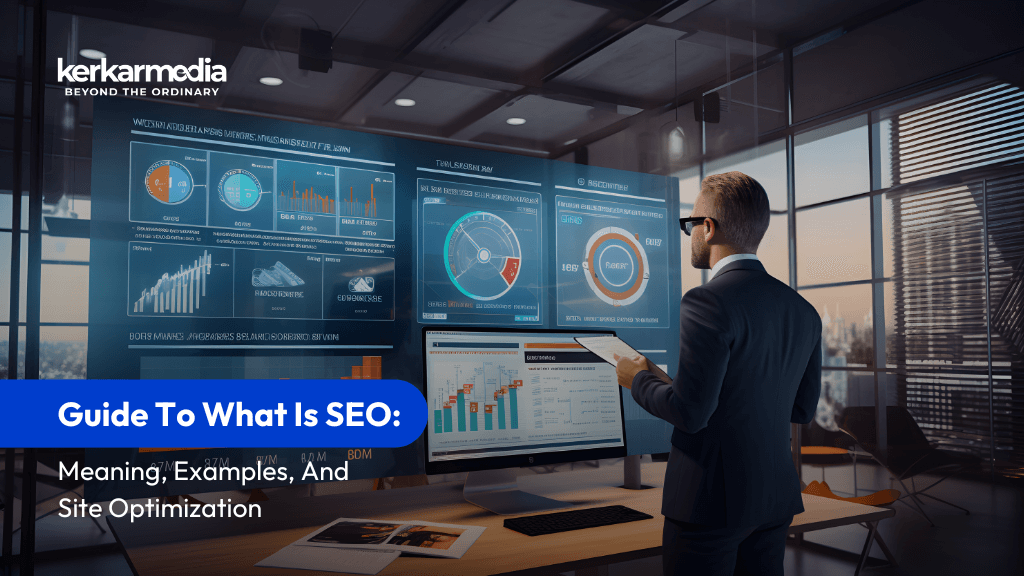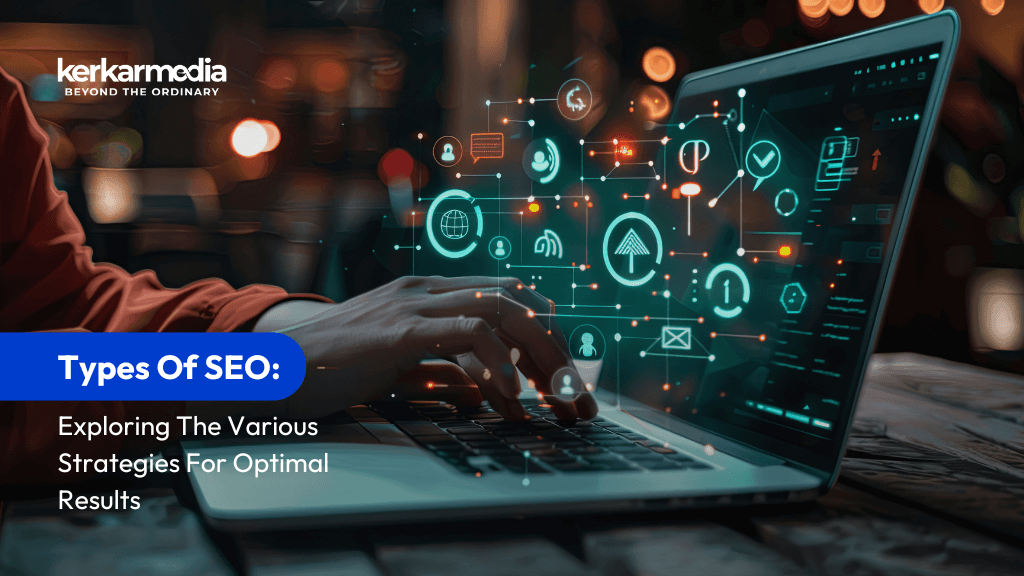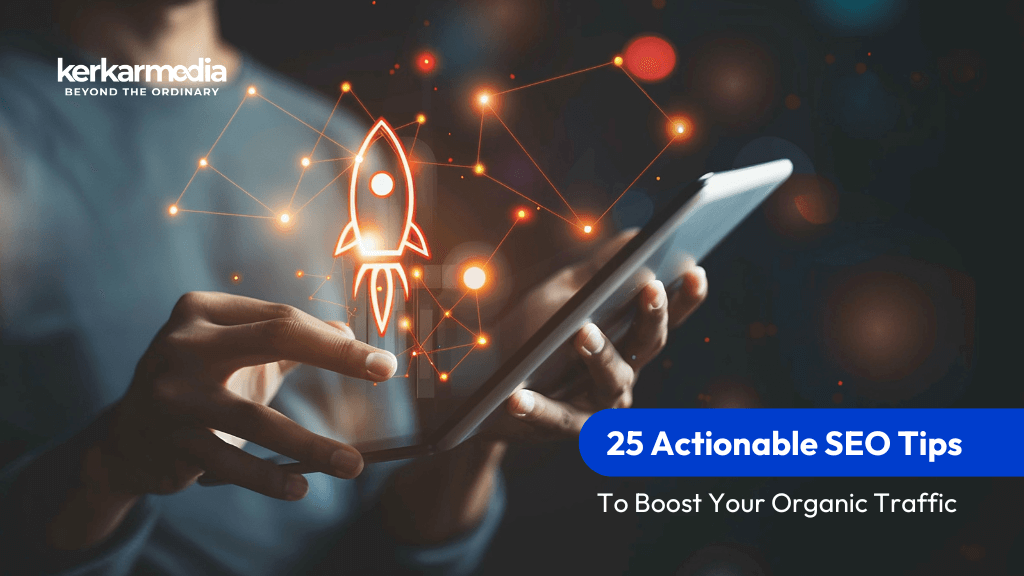SEO stands for “search engine optimization.” In simple terms, SEO means the process of improving your website to increase its visibility in Google, Microsoft Bing, and other search engines whenever people search for keywords related to your business
In today’s digital age, having a strong online presence is crucial for businesses and individuals alike. And when it comes to online visibility, there’s nothing quite as important as search engine optimization or SEO.
But what exactly is SEO? How does it work? And how can you optimize your website to rank higher in search engine results?
In this ultimate guide to SEO, we’ll answer these questions and more, giving you a comprehensive understanding of this powerful marketing tool.
Demystifying SEO: A Beginner’s Guide
Understanding the Basics of SEO and Its Importance
SEO stands for search engine optimization, which is the practice of improving your website’s visibility on search engines like Google. When someone searches for a keyword related to your business or industry, you want your website to appear on the first page of search results. Why? Because statistics show that the vast majority of users never click beyond the first page. So, if you’re not on that coveted first page, the chances of users finding your website are slim.
Furthermore, the higher your website ranks on search engine results pages (SERPs), the more credibility and trust you’ll establish with your audience. Studies have consistently shown that users perceive websites that rank higher as more authoritative and trustworthy. This is because search engines like Google use complex algorithms to determine rankings, taking into account factors like relevance, quality, and user experience.
SEO vs. PPC: Which Strategy is Right for You?
Before diving deeper into SEO, it’s important to understand the difference between SEO and PPC (pay-per-click) advertising. While both strategies aim to improve your website’s visibility, they do so in different ways.
SEO is an organic, long-term approach that focuses on optimizing your website and its content to attract organic traffic from search engines. On the other hand, PPC advertising allows you to bid on keywords and display ads in search engine results. When users click on your ad, you pay a fee.
Deciding which strategy is right for you depends on various factors, such as your budget, competition, and goals. SEO requires patience, as it takes time to see results. PPC, on the other hand, can provide more immediate visibility, but it can be costly, especially for competitive keywords.
Decoding the Inner Workings of Search Engines
Now that you understand the importance of SEO, let’s dive deeper into how search engines work. Search engines like Google use bots, also known as crawlers or spiders, to browse the internet and collect information from websites. They then index this information and use complex algorithms to determine how relevant a website is to specific search queries.
One of the primary factors search engines consider when ranking websites is relevance. This involves analyzing various on-page factors, such as keyword usage, meta tags, and content quality. Search engines also take into account off-page factors, such as backlinks, social signals, and user behavior. By understanding these factors, you can optimize your website to improve its visibility in search engine results.
Unraveling the Secrets of Effective SEO
The Key Elements of Successful SEO
Successful SEO involves a combination of various key elements. First and foremost, keyword research is essential. By identifying the keywords your target audience is using to find products or services like yours, you can optimize your website accordingly. Be sure to include relevant keywords in your page titles, headings, meta descriptions, and throughout your content.
In addition to keyword optimization, on-page factors like website structure, page load speed, and mobile-friendliness play a crucial role. Search engines prioritize websites that offer a positive user experience, so it’s important to ensure your website is easy to navigate, loads quickly, and is responsive on all devices.
Crafting Compelling and Relevant Content for SEO
When it comes to SEO, content is king. High-quality, relevant content not only helps attract organic traffic but also keeps users engaged and encourages them to stay on your website longer. This can boost your website’s rankings on search engine results pages.
When creating content, focus on providing value to your audience. Educational articles, informative blog posts, and engaging videos or infographics are all effective ways to showcase your expertise and establish yourself as a thought leader in your industry. Remember to incorporate relevant keywords naturally throughout your content to improve its visibility in search results.
Enhancing User Experience for Better SEO Results
As mentioned earlier, user experience is a crucial factor in SEO. If your website is difficult to navigate, slow to load, or lacks relevant and engaging content, users are more likely to abandon your website and seek information elsewhere. This can negatively impact your website’s rankings. Therefore, it’s important to ensure your website is user-friendly and offers a seamless browsing experience across all devices.
Consider optimizing your website’s structure to make it easy for users to find relevant information. Use descriptive headings and subheadings, incorporate internal links to guide users through your site, and ensure all images are properly optimized for fast loading times.
Establishing Authority and Credibility in SEO
In the world of SEO, building authority and credibility is essential to success. Search engines consider backlinks or external links from other reputable websites as a vote of confidence in your content. The more high-quality backlinks your website has, the more credible it appears in the eyes of search engines.
Focus on creating compelling and shareable content that naturally attracts backlinks from relevant and authoritative websites. Additionally, engaging in guest blogging, influencer collaborations, and social media marketing can help increase your website’s exposure and attract quality backlinks.
7 Essential Truths You Should Know About SEO
Now that we’ve covered the basics of SEO, let’s dive into some essential truths you should know about this ever-evolving practice. These truths will help you navigate the world of SEO and make informed decisions when optimizing your website.
- SEO requires continuous effort. SEO is not a one-time task but an ongoing process. Search engines constantly update their algorithms, and competition for top rankings is fierce. To stay ahead, you must continually monitor and adjust your SEO strategy.
- Quality trumps quantity. When it comes to content, quality always wins. Providing valuable, relevant, and comprehensive content is more important than churning out a high volume of mediocre content.
- Mobile optimization is non-negotiable. With the rise of smartphones and mobile browsing, optimizing your website for mobile devices is crucial. Search engines prioritize mobile-friendly websites, and a poor mobile experience can negatively impact your rankings.
- User experience is paramount. A positive user experience not only improves your website’s rankings but also encourages users to engage, convert, and return. Make sure your website is intuitive, user-friendly, and offers relevant and valuable content.
- Local SEO matters. If you have a physical location or serve a specific geographic area, local SEO is essential. Optimizing your website for local searches can help you attract customers in your area and increase foot traffic to your store.
- Analytics and data are your best friends. To measure the effectiveness of your SEO efforts and make informed decisions, it’s essential to track, analyze, and interpret relevant data. Use tools like Google Analytics to gain insights into your website’s performance and identify areas for improvement.
- SEO takes time. While it may be tempting to expect immediate results, SEO is a long-term strategy. It can take weeks, months, or even years to see significant improvements in your website’s rankings. Patience and persistence are key.
Getting Started with SEO: A Step-by-Step Guide
Now that you have a solid understanding of SEO, let’s explore how to get started. Follow these steps to kickstart your SEO journey:
- Perform keyword research to identify the keywords your target audience is using.
- Optimize your website’s structure and metadata to include relevant keywords.
- Create high-quality, engaging content that incorporates your target keywords.
- Optimize your website for mobile devices to enhance user experience.
- Start building backlinks from reputable websites in your industry.
- Maintain a consistent content creation and optimization strategy.
- Monitor your website’s performance using analytics tools and make necessary adjustments.
FAQs: What Is SEO?
The Role of SEO in Digital Marketing: Explained
SEO plays a crucial role in digital marketing by driving organic traffic to your website. While other digital marketing strategies like social media marketing and pay-per-click advertising can also be effective, SEO provides a cost-effective, long-term solution for increasing organic visibility and attracting targeted traffic.
Can You Handle SEO on Your Own?
While it’s possible to handle SEO on your own, it can be a complex and time-consuming process. SEO requires in-depth knowledge, ongoing monitoring, and continuous adjustments. Therefore, many businesses choose to hire a professional SEO Company in Mumbai to ensure they achieve optimal results.
Beginner’s Guide to Learning SEO
If you’re new to SEO and want to learn more, there are numerous online resources available to help you get started. Blogs, video tutorials, and online courses can provide valuable insights into the world of SEO and equip you with the knowledge and skills to optimize your website effectively.
The Benefits of Using SEO Tools
SEO tools can streamline and enhance your SEO efforts by providing valuable data, insights, and automation. These tools can help with keyword research, website audits, competitor analysis, backlink tracking, performance monitoring, and much more. Investing in quality SEO tools can save you time and help you make informed decisions for your SEO strategy.
Conclusion
In conclusion, SEO is a powerful marketing tool that can significantly impact your website’s visibility and success. By understanding the basics of SEO, decoding search engine algorithms, unraveling effective SEO strategies, and addressing common SEO questions, you’ll be equipped with the knowledge to optimize your website effectively. Remember, SEO is an ongoing process that requires continuous effort, but the results can be well worth it. So, dive in, start implementing SEO techniques, and watch your website climb the search engine rankings.










